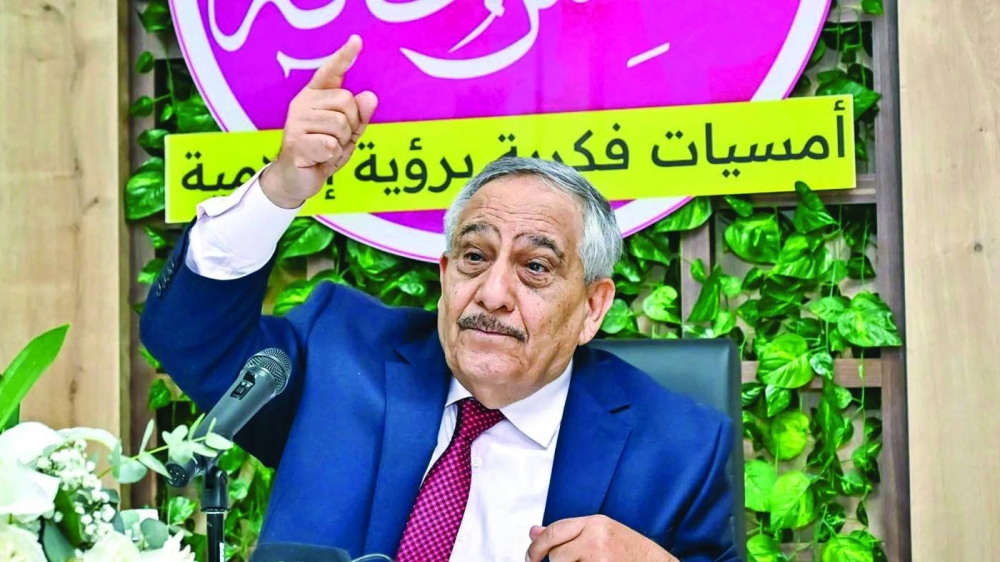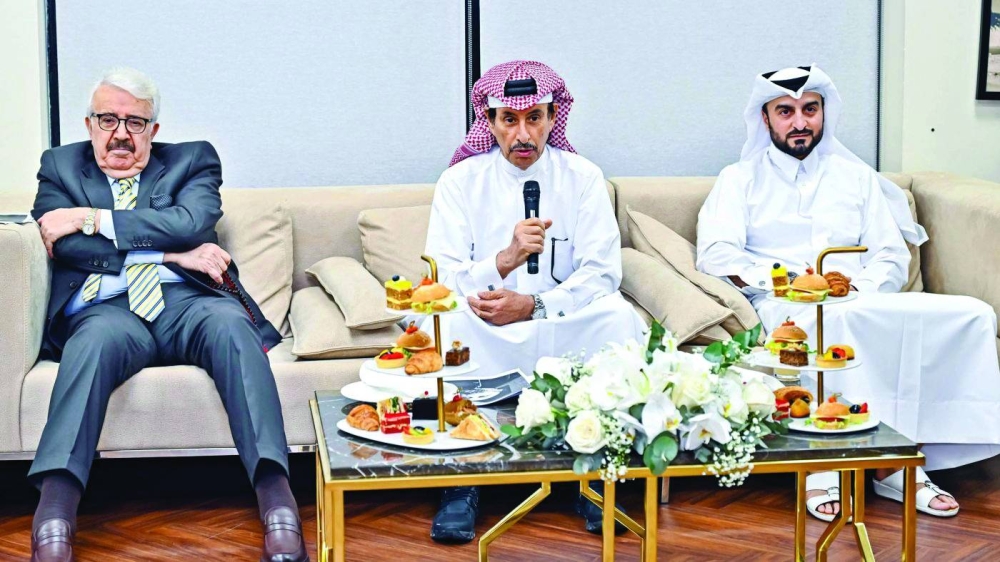The Qatar Press Center (QPC) organised a new lecture within the “Press Council” initiative, presented by Dr Mohamad Mudaffar al-Adhami, on *Iraqi Journalism, Origins and Development.
Al-Adhami presented the stages of development of journalism that Iraq has witnessed over the years, to a group of media figures and intellectuals.
QPC Board of Directors chairman Saad al-Rumaihi welcomed the lecturer and noted: “When we talk about Iraq, the talk is about a country with a long history.”
“Its press has contributed and continues to do so despite the difficult circumstances of our nation,” he said.
Al-Rumaihi recalled his first visit to Iraq in 1979, when it was the first Arab country to publish a sports newspaper.
Dr al-Adhami divided the history of the Iraqi press into five stages, the first of which was the stage of emergence when Iraq was part of the Ottoman Empire.
The second was the state of the press during the British occupation and the 20th revolution.
The third stage was dedicated to the press during the period of the national era rule, during the monarchy.
The fourth stage is the republican era, and the fifth is the Iraqi press after the American occupation in 2003.
Regarding the Ottoman era, Dr al-Adhami said that it occupied the second half of the 19th century, when the reformer Midhat Pasha became governor of Iraq in 1869.
“Midhat Pasha carried out important administrative reforms in Iraq, making it three governorates to facilitate its administration,” he said. “His reforms included importing a printing machine from Paris to issue an official newspaper, *Al-Zawraa.”
“He built a special building for it, and published its first issue in 1869 in Baghdad, in Arabic and Turkish, in eight small pages,” he continued. “It was published weekly, every Tuesday.”
In its first issue, it published local and international news, and an editorial that reflected the policy of Governor Medhat Pasha.
During Turkish rule, *Al-Zawraa continued to be published, but Dr al-Adhami noted that the life of newspapers was short, especially if they were opposed to the government.
Regarding the press under the British occupation, the expert said: “Within a week of the British occupation of Basra in 1914, the British administrators seized the three printing presses in the city and began distributing a news bulletin to cover their military operations, which was printed daily in both Arabic and English.”



